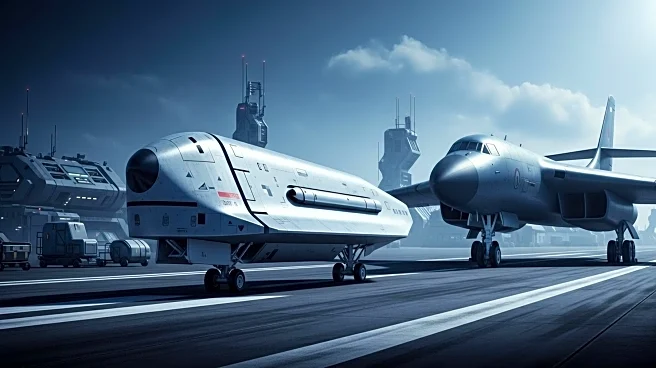What's Happening?
Russia has initiated joint military exercises with Belarus, known as 'Zapad', which began on September 12. These exercises aim to enhance military command and coordination in the event of an attack on either Russia or Belarus. As part of these drills, Russia fired a Zircon hypersonic cruise missile at a target in the Barents Sea and deployed Sukoi Su-34 supersonic fighter-bombers for strikes. The Russian defense ministry has stated that these exercises are purely defensive and not intended to threaten any NATO member. However, NATO has responded with its 'Eastern Sentry' operation following the incursion of Russian drones into Poland earlier in September.
Why It's Important?
The military exercises underscore the ongoing geopolitical tensions in Eastern Europe, particularly between Russia and NATO countries. The use of advanced weaponry like hypersonic missiles highlights Russia's military capabilities and its strategic partnership with Belarus. This development could further strain relations with NATO, as the alliance remains vigilant against potential threats. The drills also reflect Russia's commitment to strengthening its defense posture in the region, which could influence future diplomatic and military engagements.
What's Next?
The continuation of these exercises may prompt further responses from NATO and neighboring countries, potentially leading to increased military readiness and strategic planning. Diplomatic efforts may be necessary to de-escalate tensions and ensure regional stability. Observers will be watching for any changes in military deployments or policy shifts from both Russia and NATO in the coming weeks.
Beyond the Headlines
The drills may have broader implications for international arms control discussions, particularly concerning the deployment of hypersonic weapons. The exercises could also impact Belarus's geopolitical standing, as its involvement with Russia may affect its relations with Western countries. Long-term, these developments could influence the balance of power in Eastern Europe and shape future security policies.








